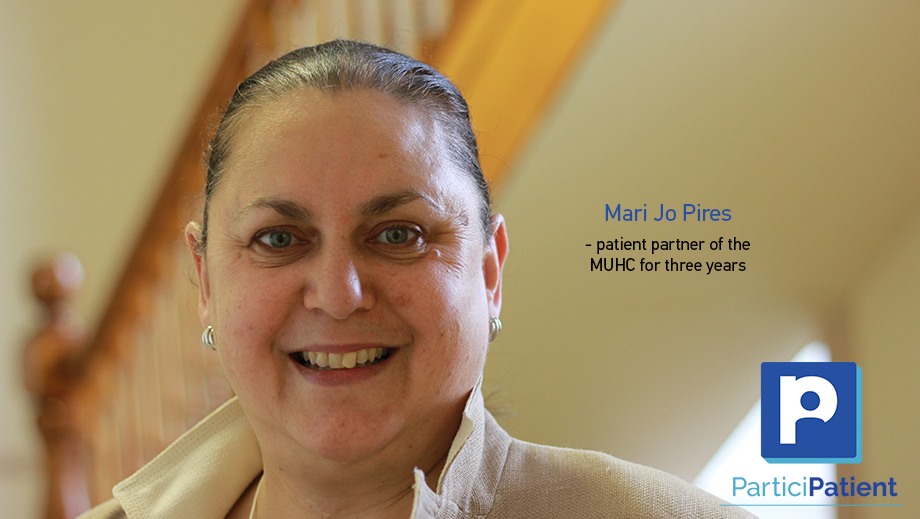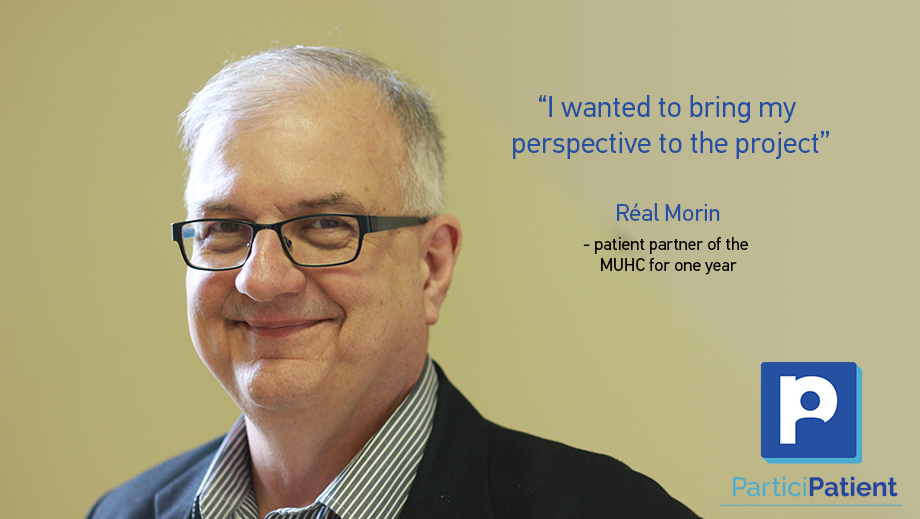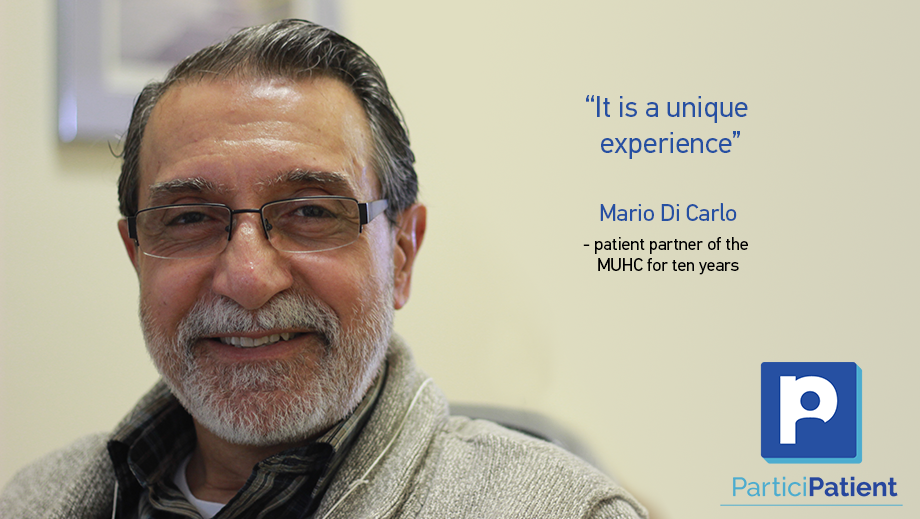A game changer from the start
After many meetings, participants in the Lachine Hospital modernization project, also known as Hop Lachine!, gathered once more on June 6th for a recap of the five workshops aimed at planning the clinical development of the hospital. These meetings, based on the Lean* approach, made it possible to improve the work organization and test many scenarios before tackling the actual design of the premises.
Like the clinical staff and the planning team, patient partners were fully involved in each workshop and made vital contributions, according to Chantale Bourdeau, interim associate director of Nursing at the Lachine Hospital of the McGill University Health Centre (LACH-MUHC) and co-chair of the modernization effort.

"The involvement of our patient partners really influenced the decision-making processes during the Lean workshops," she explains. "Thanks to them, the level of discussion evolved: we were not just talking about data analysis, but also about what this data means to patients. Our objectives in this context became even more precise and more firmly rooted in the patients' reality."
Chantale mentions a workshop where the group was discussing the trajectory of care in Ophthalmology as an example.
"At one point, when we were examining the care process, a patient partner said, 'that’s not what I want. I come with a caregiver, and we wait for hours before we can go home. We need to improve the process.' We took his comment into consideration, and it changed the entire procedure for how we planned the welcoming and scheduling of appointments in ophthalmology. If the patient partner had not been there, the care and administrative team would have made very different choices. It was a wake-up call for the team."
The fruitful partnership was appreciated by all those involved in the Hop Lachine! project. The MUHC intends to adopt the same approach during its future redeployment projects, most notably for the Montreal General Hospital.
* The Lean Design approach is based on continuous quality improvement, professional development of employees and managers, and simplification of processes and activities to make work organization more efficient.
Three patient partners tell us about their experience in the Hop Lachine! project

Why did you get involved in this project?
The project attracted me because I saw the possibility of having a voice from the start. We are usually working to change existing systems, but during the workshops we were able to analyze the ways of doing things and design ideas to improve the quality of patient care before to the development of the functional and technical plan.
Tell us about the workshops.
The people around the table were very knowledgeable, but sometimes it is important to see things through someone else's eyes. It made me feel good to see people really interested in making positive changes.
How do you see the future Lachine Hospital?
It will be a great success. The staff is only competent, enthusiastic and very attached to their hospital. They will be able to provide care in a pleasant and efficient environment.
What does quality health care mean to you?
Beyond the quality standards, which are essential, we want to be informed, heard and respected. Informed patients become better patients.

Why did you get involved in this project?
As a patient of the Lachine Hospital for two years, I wanted to bring my perspective to the project. In addition, it fits well with my management experience: I am interested in everything that concerns the organization of work and the improvement of processes.
Tell us about the workshops.
Everyone, regardless of their role, worked at the same level and with respect. As we advanced, we felt the air of collaboration. I think that by speaking about my experience, I have helped people look beyond their reality and have a global view of the situation.
How do you see the future Lachine Hospital?
I see a hospital where professionals can provide basic and specialized care in the most efficient way possible. I also see a hospital that will meet the needs of its community.
What does quality health care mean to you?
Rapid diagnosis, modern and well-planned facilities and professionals who feel appreciated. By being fulfilled by their work, they will be able to provide the best care.

Why did you get involved in this project?
I am the caregiver of my father, a patient of the hospital for several years. I also have a friend who is a resident in the Camille-Lefebvre Pavilion, and I visit him regularly.
Tell us about the workshops.
The workshops were well designed and carried out in a democratic manner. As a patient, I often collaborate on projects that are already halfway done, but in Lachine, all the stakeholders are co-designers of the new hospital. It is a unique experience.
How do you see the future Lachine Hospital?
My expectations are very high. I think that both the structural and the logistical aspects of the project will meet the needs of the staff and the patients. I also hope that the collaborative approach will bear fruit and be a model for the MUHC.
What does quality health care mean to you?
It is care where health professionals take into account not only the diagnosis but also the needs of the patient in a global way. Quality health care requires a real partnership between the patient and the healthcare staff.
Thank you to our patient partners who are involved in the Hop Lachine! project: Danielle Carter, Anna Cistera, Jozef Daenens, Mario Di Carlo, Réal Morin, Elizabeth Pereira, Mari Jo Pires, Régis-Martin Simard and Emmanuelle Simony.
